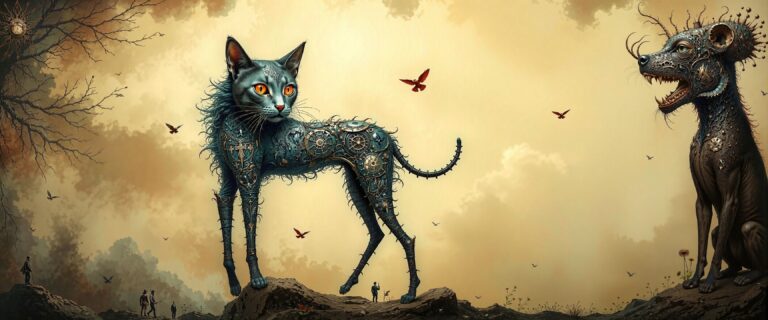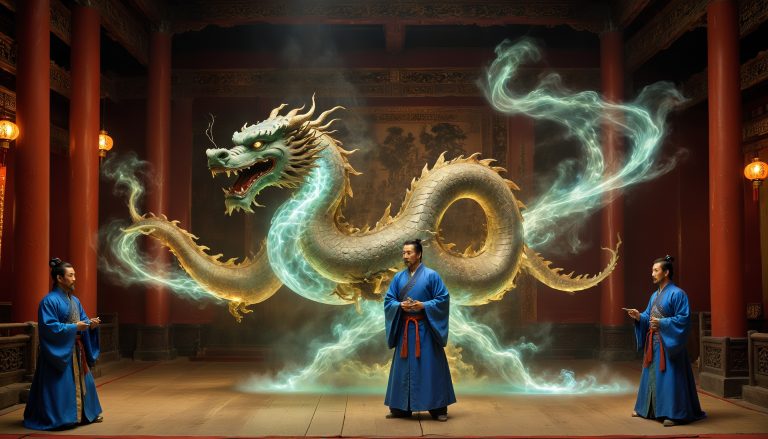The discovery of Genghis Khan’s hidden poetry collection unveils a side of the Mongol conqueror seldom seen or acknowledged by the world. Known for his ruthless military campaigns that reshaped the medieval landscape, the image of Genghis Khan as a merciless warlord has dominated narratives for centuries. However, tucked away in the silent whispers of history, a trove of deeply introspective and untouched poems presents a starkly contrasting persona of this historical figure.
This collection, emerging from the shadows of his towering legacy, offers a rare glimpse into the inner life of a man who, beyond his battlefield exploits, engaged in a reflective and emotional dialogue with the world around him. These poems, rich in imagery and emotion, traverse themes of nature, existence, loss, and the human condition, revealing a complexity to Genghis Khan that challenges the one-dimensional portrayal often ascribed to him.
Far from the clamor of war and conquest, Genghis Khan’s poetry echoes the thoughts of a man intimately connected with the natural world and the impermanence of life. Through his verses, we encounter a conqueror who sought to conquer not only territories but also the realms of emotion and thought. His poetry, marked by a raw and poignant exploration of life’s fleeting beauty and inevitable sorrows, invites readers to reconsider the legacy of a figure who shaped the course of history.
This unexpected discovery prompts a reevaluation of Genghis Khan, suggesting that beneath the armor of the warrior king lay the soul of a poet. It beckons us to look beyond the battles and see the human, offering a profound connection across the centuries to a man whose softer side remained hidden until now. Through his poetry, Genghis Khan extends an invitation to understand the depths of his spirit, providing a bridge to the past that enriches our understanding of the complex tapestry of human history.
In a groundbreaking discovery that has captivated scholars and enthusiasts alike, a previously unknown collection of poetry attributed to Genghis Khan was unearthed in a remote area of Mongolia. The discovery occurred when a team of archaeologists, conducting a survey on the steppes, stumbled upon a hidden underground chamber. This chamber, thought to be part of a network of sites significant to the Mongol Empire, contained a variety of artifacts, among which was a small, intricately carved wooden box. Inside this box, wrapped in silk and preserved against time, were scrolls of delicate, ancient paper inscribed with Mongolian script.
The authenticity and dating of the scrolls were confirmed through a series of meticulous analyses, including carbon dating and linguistic studies, which linked the writings directly to the era of Genghis Khan. Scholars believe these poems offer unprecedented insights into the personal thoughts and emotional depth of one of history’s most formidable conquerors, revealing a complex individual far removed from his sole identity as a warrior. The discovery not only sheds new light on Genghis Khan’s character but also on the cultural richness of the Mongol Empire. The poetry collection, now being translated and studied, marks a significant addition to the legacy of Genghis Khan, bridging the gap between the historical figure and the man behind the myth.
Sovereign of Silence
“Upon the endless steppe, under the eternal sky,
I stand, a solitary figure, amidst the whispering grass.
The wind tells tales of days gone by,
And I listen, my heart as open as the vast lands before me.
The stars, my silent guides, watch over me,
Their light a reminder of those I have lost,
And those I have yet to find. In this moment,
I am both king and wanderer,
Seeking not conquest, but understanding.
The world, vast and unyielding,
Echoes with the sound of my horse’s hooves.
Yet, within me, there is a quiet,
A space where my soul dwells,
Unfettered by the burdens of my crown.
Here, in the solitude of the steppe,
I find my truth, my peace.
For though I may command armies,
It is in the silence that I am truly sovereign.”
Dawn's Respite
In the hush of dawn, before the world stirs to life,
I stand amidst the remnants of the night.
The chill of the morning air, a cloak around my shoulders,
Speaks of battles fought, of victories and defeats.
But in this tranquil hour, my thoughts drift to the quiet,
To the simple beauty of the earth that lies beneath.
The dew on the grass, a mirror to the stars now fading,
Whispers of resilience, of strength found in gentleness.
“Let the sword rest,” I murmur to the coming day,
“For now, I seek the solace of the pen.
In words, I find my haven, my escape,
A world where the warrior can mend.”
The Conqueror's Soliloquy
Beneath the moon’s watchful eye, I pen my thoughts,
A solitary figure against the canvas of the night.
The ink flows, a river of dreams and doubts,
Charting a course through the landscape of my soul.
Around me, the camp lies silent, the warriors at rest,
Unaware of the turmoil that stirs within their leader’s breast.
For though I wield power, command legions to fight,
It is in the silence of the night that I face my truest test.
“To conquer oneself,” I write beneath the stars’ glow,
“Is the greatest victory, the hardest battle one can know.
For the heart is a wild thing, untamed and free,
And to master it, one must first learn to let go.”
Whisper of the Steppe
In the silence of the steppe, I hear a whisper,
A voice carried by the wind, ancient and deep.
It speaks of the earth, of roots and sky,
Of the fleeting moment when eagles soar high.
In the whisper, there’s wisdom, a sage’s song,
A reminder that even the mighty can long
For the simple grace of the world’s embrace,
And find in the wild, a sacred space.
Shadows and Light
Beneath the moon’s gentle glow,
I stand, A shadow cast upon the land.
The night’s quietude speaks to my soul,
Of battles won and the unforgiving toll.
Yet, in the darkness, there’s also light,
A promise of dawn, after the night.
It’s in this dance of shadows and beams,
I find my hopes, my dreams.
Actual knowledge about the theme
For those interested in delving deeper into the historical and cultural facets of Genghis Khan and his legacy, the following resources offer valuable insights:
-
Genghis Khan on Wikipedia – Provides a comprehensive overview of his life, conquests, and impact on world history. Visit Wikipedia
-
World History Encyclopedia – Offers detailed articles on Genghis Khan’s military strategies and the Mongol Empire’s expansion. Visit World History Encyclopedia
-
The Metropolitan Museum of Art – Features essays on the legacy of Genghis Khan, focusing on art and culture in Western Asia during the Mongol Empire. Visit The Met
-
Encyclopaedia Britannica – Provides a biography of Genghis Khan, highlighting his achievements and the establishment of the Mongol Empire. Visit Britannica
-
Central Asian Arts on Britannica – Explores Mongolian literature, poetry, and epic tales, highlighting the cultural heritage of the Mongol Empire. Visit Britannica – Central Asian Arts
These resources offer a mix of historical analysis, cultural insights, and scholarly perspectives on one of history’s most iconic figures and the empire he built.











